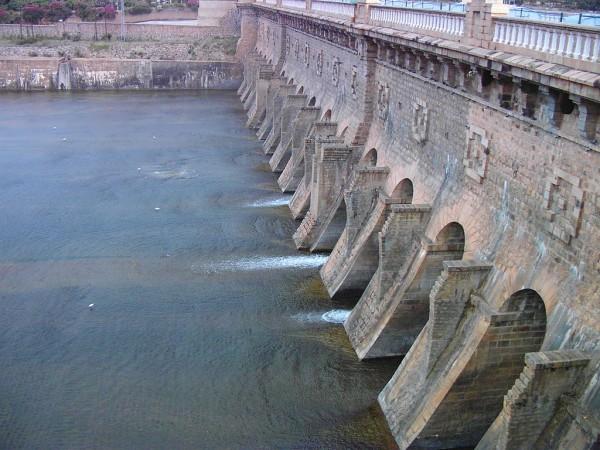
Protests and violence have marred the normal life in Karnataka after the Supreme Court's ruling on Tuesday asking the state to release 15,000 cusecs of Cauvery river water to Tamil Nadu for the next 10 days. After the SC order on Tuesday, farmers in the state and Cauvery Horata Samiti activists blocked roads in Shrirangapattana taluk of Mandya and a bandh was called by the pro-Kannada outfit. The bandh is likely to cause a disruption in the normal life in Karnataka on Friday.
Here's all you need to know about the ongoing water dispute:
What is the dispute about?
Karnataka and Tamil Nadu utilise the water of the Cauvery river flowing through the states for irrigation and drinking purposes. Both the states have been allotted particular portions of water to be used from the river. After years of dispute, Tamil Nadu was finally granted 419 tmc ft of water and Karnataka was granted 270 tmc ft. However, both the governments challenged the decision of the Cauvery Water Tribunal in the Supreme Court seeking more water to themselves.
Why is the issue broiling now?
Considering the shortfall of the monsoon rains this year, Tamil Nadu had filed an application for the release of at least 50.52 tmc feet of water from the Cauvery river to save 4,000 acres of samba crops this season. However, Karnataka said that it has a deficit of around 80 tmc feet of water in four of its water reservoirs in the state. Karnataka said it wants the water for drinking purposes.
What is the Supreme Court's verdict?
The Supreme Court on Monday ordered Karnataka to release 15,000 cusecs of water per day for the next 10 days to Tamil Nadu. The SC observed that Tamil Nadu had suffered water deficit in June, July and August, causing harm to the Mandva crops in the state. However, the order has not gone down well with farmers in Karnataka who have taken to the streets to agitate against the SC order.
Karnataka wants to triple its water share from the Cauvery river, which originates from Kodagu and flows through Karnataka, Tamil Nadu, Puducherry and Kerala, which means that Tamil Nadu's portion will reduce.
Will a bandh be observed in Karnataka on Sept. 9?
Yes, it is likely that a bandh will be organised. Pro-Kannada outfits have called for a Karnataka Bandh on Sept. 9 protesting against the Supreme Court order. A Public Works Department office and a police station were vandalised by protesters in Mandya on Tuesday. The state government declared that schools and colleges will remain closed for two days in Mandya, which is the hotbed of Cauvery water dispute politics.
How is normal life affected?
The dispute has caused violence in the state disrupting normal life. A bandh in Karnataka on Friday will see few or no vehicles plying on the roads. There could also be disruption of the public transport. Many schools and colleges are expected to be shut on Sept. 9.
When did the dispute begin?
The Karnataka-Tamil Nadu Cauvery water dispute dates back to the pre-Independence era when Karnataka was Mysore and Tamil Nadu was called Madras. These two princely states, during the British era, reached an agreement in 1924, where Mysore was allowed to build a dam at Kannambadi village to contain 44.8 thousand million cubic feet of water.
The agreement between the two states was valid till 50 years and both the sides approved of a review after that period. However, post Independence, the two states were not willing to accept the agreement anymore and they took their dispute to the Supreme Court. The matter has gone to the SC several times but there has not been a satisfactory solution.
A Cauvery Fact Finding Committee was set up in the 1970s to find out how much water was required by the states. The Committee found out that Tamil Nadu's irrigated lands had expanded from 1,440,000 acres to 2,580,000 acres, while Karnataka's irrigated area stood at 680,000 acres. The expansion spurred Tamil Nadu to increase its demand of water.

















